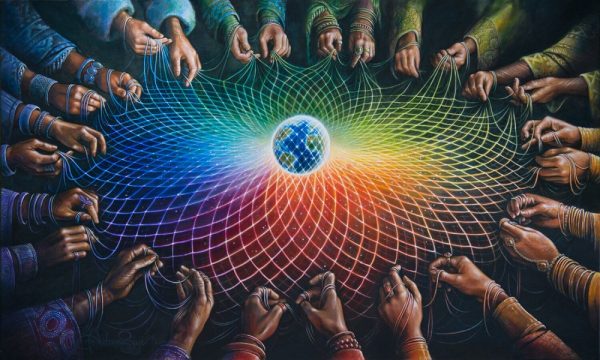The recent decision by the Biden Administration to stop the years-long practice by the Department of Energy of rubber stamping proposed methane gas (LNG) export terminals was a definite victory for the planet and its peoples. It’s a “pause” for about a year, by no means the halt to ANY new fossil fuel projects called for three years ago by the International Energy Agency. But it is the latest sign of the growing political and organizational power of the US and worldwide movement for climate justice and urgent climate action.
This victory almost certainly would not have happened if that movement had not brought many tens of thousands of people into the streets of mid-town Manhattan in NYC on September 17th. That mass demonstration, combined with 700 or so smaller actions around the world at the same time and hundreds of nonviolent direct action arrests in NYC before and after the 17th, was not a policy victory but was definitely something which had a big political impact.
And there are other victories being won, such as in the state of New Jersey where I live and am politically active. Here, primarily because of the five-plus years of coordinated work by the Empower New Jersey coalition of 130 or so groups statewide, half of the 12 fracked gas infrastructure projects in the works five years ago when we were formed have been defeated, and two others are likely defeats. Only four of those 12 have been or are likely to be built and go into operation.
What do all three of these victories have in common?
-An EJ analysis: A very big one is a commitment to consciously working to have a broadly based coalition with an anti-racist, environmental justice lens and participation in decision-making from groups based in people of color and low-income communities. Sometimes those two things—a broad coalition and an EJ analysis/involvement—are in conflict, which then weakens the overall effort. But when there is success in doing both, experience has shown that there is an energy and a dynamic which yields positive, sometimes very big, results.
-A healthy internal process: Fortunately, more and more leaders of the many organizations fighting hard on the climate and other issues appreciate that organized efforts need a healthy, democratic internal process of decision making where the perspectives of frontline groups are given special consideration. Also essential is a commitment to listening to and involving young people, working class people, and lgbtq+ people. This doesn’t mean that there aren’t disagreements and conflicts, sometimes pretty intense, but it does mean that when these develop there is a conscious effort to work to resolve them in an honest and upfront way.
-Multiple tactics: Over the five plus years of the Empower New Jersey coalition’s work there have been a wide range of tactics used, all of which have been necessary to achieve victories: outreach to and building relationships with mass media outlets—visible mass demonstrations—bird dogging those we are pressuring with our demands—nonviolent direct action involving risk of arrest—long distance, visible walks (we did a 50 mile one over five days)—lobbying of relevant elected officials—testifying, in person and online, at meetings of the relevant government bodies and agencies—and probably some more. The targets, the ones who have the power to do the right thing, need to be seeing and feeling us over and over again.
Sometimes, organizing is more like hanging on and refusing to give in despite very bad odds. Sometimes you are wondering much too often if there’s really much hope of defeating the bad things you are fighting. But history shows that if we don’t give up, little by little strengthen the core group of people taking action, increasingly involve significant numbers of people, and use our intelligence and creativity as best we collectively can, then yes, organized people really can defeat organized money backed by corrupt power.
And over time we can create a mass movement with the smarts and strength to bring about the systemic, revolutionary change so urgently needed in this troubled but wonderful world.
This essay also appears on Ted Glick’s Future Hope column.
ZNetwork is funded solely through the generosity of its readers.
Donate